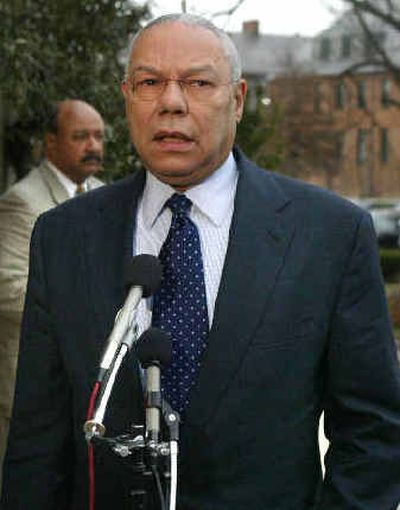Delayed reaction to tsunami seems to be part of a pattern

CRAWFORD, Texas – President Bush’s initial, halting response to the Indian Ocean tsunami catastrophe, followed within days by strong expressions of concern and decisive action, spotlighted a governing style that sometimes finds its stride only after stumbling at the gate.
This seems especially true when Bush is confronted with a cataclysmic event and must improvise quickly – as with last Sunday’s tsunami or the Sept. 11, 2001, terrorist attacks.
“The pattern we tend to see is an administration that quite often ends up doing the right thing, even though their initial judgments and first reactions are often wrong and short-sighted,” said Charles Cook, a Washington-based political analyst and publisher of the Cook Political Report.
Slow to speak out, Bush first offered $15 million in financial aid, then $35 million. But now, having upped the aid package to $350 million and dispatched both Secretary of State Colin Powell and his brother, Florida Gov. Jeb Bush, to survey relief efforts, the president may capitalize on an opportunity to provide world leadership and make amends with Muslims opposed to the Iraq war. Many tsunami victims are Muslim.
The president’s decision to send his brother to the region was “about as strong a signal of personal concern and intent to help as Bush could send without going himself,” said Bruce Buchanan, a University of Texas historian.
The first U.S. president with a graduate business degree, Bush sees himself as an unflinching leader who sticks to his guns. Yet on numerous occasions he has shown an ability to bend to the public will – to the point of executing U-turns.
Administration officials have defended Bush’s response to the Asian crisis by saying his primary focus was to ensure, out of the spotlight, a swift and coordinated U.S. relief effort.
Bush also is known to dislike providing running commentary on events.
Appearing Sunday on several talk shows, Powell contended the administration had “responded appropriately.”
“We have diverted food aid,” Powell said on CNN. “We have put disaster teams on the ground. The president announced the creation of a core group that allowed us to pull the contributing nations of the region together to work with the United Nations. We pulled together an international coalition that is working well now.”
On NBC, Powell noted other nations also started slowly, then increased involvement as the extent of the disaster became apparent. Japan, he noted, had started out with a much lower number than its current $500 million donation, “as did so many other nations.”
“I want the American people to understand that their government and our society have responded appropriately,” Powell said. “I will tell you who is not churlish or disappointed in our response, and that’s the nations who are receiving aid.”
The first White House reaction came last Sunday, the day of the disaster, in a statement issued by Deputy Press Secretary Trent Duffy aboard Air Force One as the president flew to Texas to begin an eight-day vacation. The statement expressed Bush’s “sincere condolences for the terrible loss of life and suffering” and said that the United States “stands ready to offer all appropriate assistance” to the affected nations.
Even as the catastrophe began to crystallize, the president was not heard from until Wednesday.
On Thursday, Bush named Powell and his brother to lead a delegation to the region. A day later, he increased the U.S. contribution tenfold.
Cook said the flap would blow over.
“These things tend to be short-lived, inconsequential in the long run,” he said.